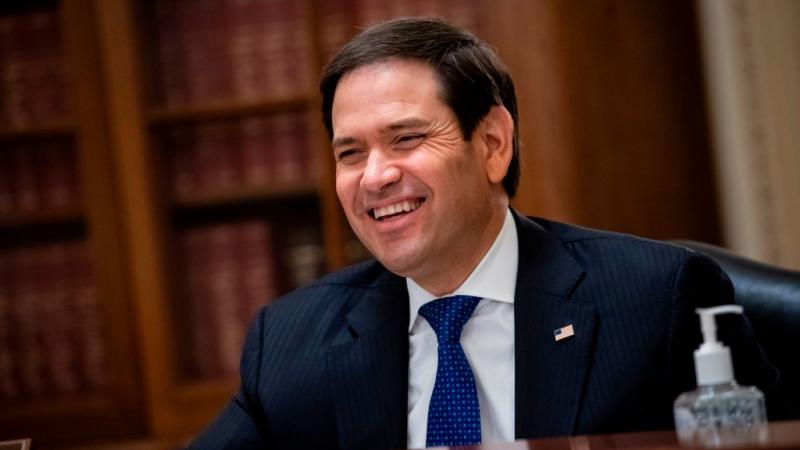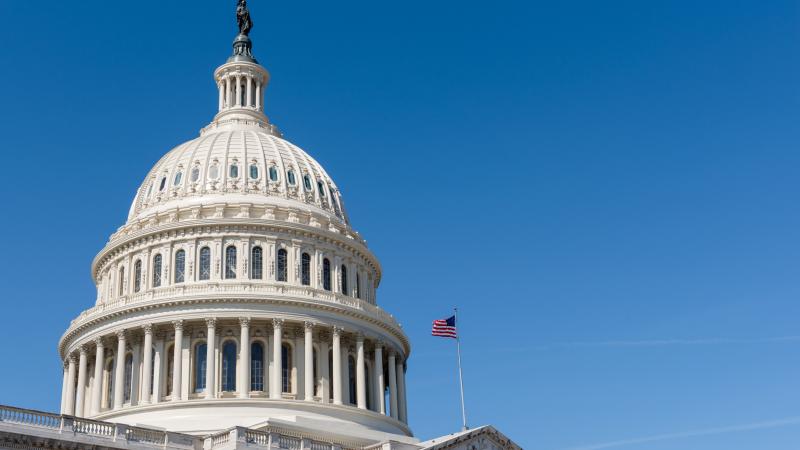From impeachments to exports, Communist China pressures a key American ally in South Korea
China last week threatened to punish South Korean companies that export products containing critical rare-earth metals to the U.S.
China last week threatened to punish South Korean companies that export products containing critical rare-earth metals to the U.S. – the latest blow to an Asian economic powerhouse and staunch U.S. ally that was already in turmoil over a series of political impeachments.
The office of South Korea’s president has been a revolving door since December, with two impeachments, one reinstatement and two temporary acting presidents. The crisis was touched off in December 2024 when the country's conservative president at the time, Yoon Suk Yeol, declared martial law. And now snap elections are scheduled for June 3.
China has sought to exploit the impeachment crisis, sending subtle and overt signals the Chinese Communist Party-run country would love to push South Korea further from the United States and closer to Beijing.
In a recent meeting with South Korean National Assembly Speaker Woo Won-shik in Harbin, Chinese President Xi Jianping said he was “seriously considering” attending the APEC summit in Gyeongju, North Gyeongsang Province, which would be the first visit by a Chinese leader to Korea in more than a decade.
Former Trump Deputy National Security Advisor Victoria Coates said Beijing is pulling out several stops to ride the impeachment crisis for advantage.
"I think you see China trying to take a much more aggressive role in the Korean Peninsula, not just in the north, but now infiltrating the south," she told the John Solomon Reports podcast on Friday. "And we've had political chaos. You remember that kind of imposition of martial law, which seems so random a couple of months ago.
"But it looks like it might have been a Chinese setup to try to create this kind of chaos, try to get a left wing, a left wing candidate in there, somebody who would be less pro-American," she said. "And then we've got reports over the last day or so that China is ramping up its military activities, particularly naval exercises around South Korea. So they really are ratcheting up tensions and trying to, I think, disrupt the key American ally in the region."
South Korea’s trade-dependent economy has already started 2025 with a precipitous decline in exports, a trend further complicated by the United States 25% tariffs on cars (and the pending levy on auto parts), which are already crippling the export sector, which slowed significantly in April.
On Tuesday, President Donald Trump eased tariffs on cars at least partially made in the U.S., but that’s only partial relief for Korea, which at best would still pay a 25% levy on 70% of the value of the cars it sells in the U.S
Without an elected head of state, the country is at a disadvantage when it comes to negotiating a favorable deal with the Trump administration, though that hasn’t stopped the government from trying.
A team of negotiators from South Korea came to Washington, D.C., this week for two days of so-called "technical" discussions with officials from the Office of the U.S. Trade Representative.
The meetings, which concluded Thursday, were reportedly to lay the groundwork for full-fledged talks over trade and economic cooperation issues, as Seoul seeks exemptions from the new U.S. tariffs.
It all adds up to what The Economist this week called “South Korea’s nightmare.”
But are the problems the country is facing due to the Trump tariffs and domestic issues? Increasingly, expert analysts say they are seeing China’s fingerprints on at least some of South Korea’s woes.
There’s little doubt that China benefits from any strain in Seoul’s relations with China.
“The changes to South Korea’s domestic and global environment will not go unnoticed in China,” London-based policy institute Chatham House said earlier this month, concluding, “Beijing will likely seek to exploit the situation to its advantage.”
But China’s interests may go beyond simple passive opportunism.
Put aside China’s recent threats regarding South Korean exports of rare earth metals, a potential weak point for the U.S., which is largely dependent on imports, which play an important role in the production of most high-tech products.
According to the Washington-based Middle East Research Institute, best known as MEMRI, Beijing’s enthusiasm over the impeachment of President Yoon Suk Yeol in early April, the leveraging of waning public support in South Korea for the 29,000 U.S. troops stationed in the country, and encouraging broader “anti-American sentiment” all form part of what MEMRI called “a core component of Beijing’s long-term strategy.”
The developments reflect “China’s strategic penetration of South Korea across multiple domains and its potential to shape the country’s political future, posing a severe threat to the foundations of the U.S.-South Korea alliance,” MEMRI said.
Of course, this would not be the first time the Korean peninsula has been home to a clash between U.S. and Chinese ideologies. The consensus among historians is that the Korean War, which officially lasted three years starting in 1950, was a proxy conflict between China and the Soviet Union supporting the North Koreans and the U.S. and its allies backing the South.
Hostilities ended in 1953, creating the Demilitarized Zone – the DMZ – one of the most heavily-guarded borders in the world along the famous 38th parallel dividing North and South (which is the reason why so many U.S. troops are still stationed there).
The two sides signed an armistice in the summer of ‘53, but no peace treaty was ever signed, meaning the war is technically still going on. The bullets of the Korean War have not been fired in more than 70 years, but the battle for influence on the Korean Peninsula remains alive.
The Facts Inside Our Reporter's Notebook
Links
- a revolving door since December
- Snap elections are scheduled for June 3
- a precipitous decline in exports
- the U.S.âs 25-percent tariffs on cars (and the pending levy on auto parts)
- slowed significantly in April
- eased tariffs on cars at least partially made in the U.S.
- 70 percent of the value of the cars it sells in the U.S.)
- âtechnical discussionsâ on U.S.-South Korea trade issues
- South Koreaâs nightmare
- Chinaâs recent threats regarding South Korean exports of rare earth metals
- largely dependent on imports
- Washington-based Middle East Research Institute
- a core component of Beijingâs long-term strategy
- a severe threat to the foundations of the U.S.-South Korea alliance
- a proxy conflict between China and the Soviet Union supporting the North Koreans and the U.S. and its allies backing the South
- the famous 38th parallel dividing North and South















